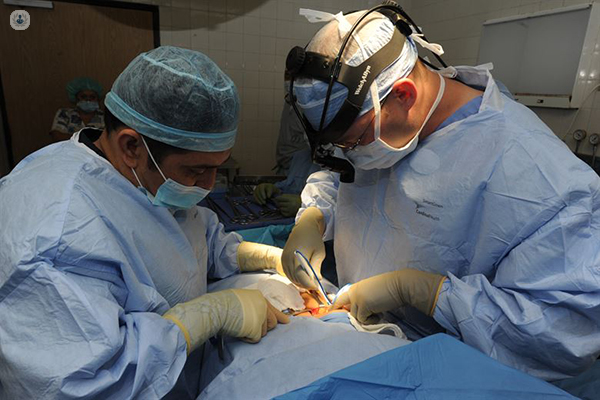What is robotic reconstruction urology used to treat?
Written by:This article focuses on robotic reconstruction urology, as revered consultant urologist, Mr Pavlos Pavlakis, provides us with an all-you-need-to-know guide in relation to this specific surgical approach.

What is robotic reconstruction urology?
Robotic reconstruction urology, also known as robot-assisted urologic surgery, is a cutting-edge approach to treating complex urological conditions using minimally invasive techniques and advanced robotic technology. This innovative surgical approach combines the precision of robotic systems with the expertise of urological surgeons to achieve optimal outcomes for patients with a variety of urological disorders.
What are the main associated advantages of this surgical approach?
One of the key advantages of robotic reconstruction urology is its ability to perform highly intricate surgical procedures with enhanced precision and dexterity. Robotic systems, such as the da Vinci Surgical System, consist of robotic arms equipped with tiny surgical instruments and a high-definition camera, which are controlled by the surgeon from a console in the operating room. This allows for greater control during surgery, as well as improved visualisation of the surgical site.
What is robotic reconstruction urology used to treat?
Robotic reconstruction urology is commonly used to treat conditions such as urinary tract reconstruction, bladder reconstruction, and pelvic organ prolapse. These procedures may be performed to repair congenital abnormalities, treat traumatic injuries, or address complications of other urological surgeries.
Common procedures include robotic urinary reconstruction in terms of stoma formation or neobladder formation during a robotic cystectomy procedure. Another robotic reconstruction operation is robotic re-implantation of the ureter.
Is it suitable for all patients?
While robotic reconstruction urology is associated with many benefits, it is not suitable for all patients or all types of urological conditions. Patients considering robotic surgery should consult with a qualified urological surgeon to determine if they are candidates for this approach and to discuss the potential risks and benefits of treatment.
If you wish to consult with Mr Pavlos Pavlakis, just head on over to his Top Doctors profile today.


